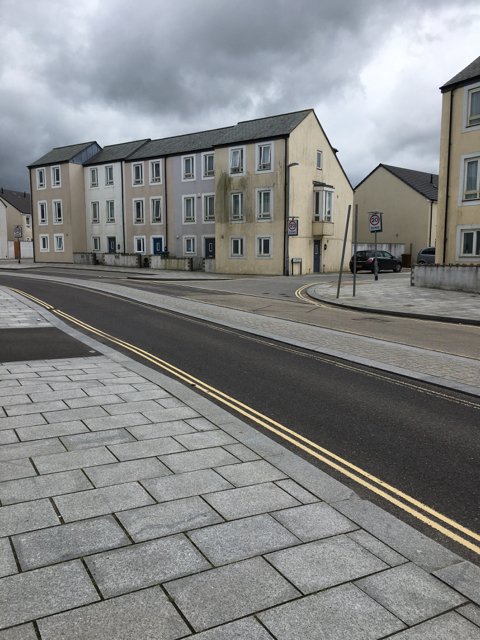Every day we wake up and choose ugliness over beauty
“Why should we tolerate a diet of weak poisons, a home in insipid surroundings, a circle of acquaintances who are not quite our enemies, the noise of motors with just enough relief to prevent insanity? Who would want to live in a world which is just not quite fatal?”
― Rachel Carson, Silent Spring, 1962 (!)
It’s uncommon to hear concepts of ‘beauty’ and ‘ugliness’ mentioned when it comes to protecting the environment, yet they should be. As a simple rule of thumb, beautiful things – usually the natural world, flora and fauna – are good for the environment, and ugly things – factories, cars, roads, car parks, most buildings, litter, capitalism (really, anything man-made) – are bad for the environment.
We worship the body beautiful, and spend a lot of money attaining and keeping it so, whether it be gyms or beauty products. We worship man-made objects of beauty – art, jewellery, technology, cars – and they’re expensive too. For corporations, the annoying thing about beauty in nature – whether a beautiful sunset, beach or landscape – is it’s pretty much free. Certainly free to look at – though perhaps not free to get to or to own.
Yet we – governments, corporations, individuals – spend money destroying beauty and replacing it with ugliness. A front garden becomes a tarmac area for a car. A field becomes a retail park. Trees are hacked down to make way for roads. Rainforests are destroyed daily to feed our consumption. City and countryside alike are littered with boarded up buildings, fly-tipping, empty plastic bottles, plastic dog shit bags, hideous retail parks and a thousand other monstrosities. Civic pride is dead. We accept ugliness, or edit it out. (We will drive hours to a beauty spot, say, ignoring the hideous motorway or train journey we had to endure, to spend a few hours at said beauty spot, then return home via ugliness again.)
It can be seen partly as a class thing (though it’s actually just a human thing). Poor neighbourhoods have the least green spaces, and those that do are the least protected. High income areas have more local parks, tree-lined roads and space. In general, people in poor areas have half the green space of people in richer areas but overall, urban areas have lost 11% of green space in the last 15 years. (Though proximity often has nothing to do with it – there are many stories in Cornwall of low income families with children who have never seen the local beach or woods – despite living just a few miles from both.)
Unfortunately Cornwall is currently being ruined by housing developments, road building and the general day-by-day decimation of nature by the council, corporations and individuals (this isn’t just Cornwall of course, but worldwide). Despite being in the midst of a so-called climate crisis, all I see around me is destruction of the natural environment to make way for completely pointless man-made crap. We seem to be blind when it comes to protecting nature.
Cornwall’s ‘Great Gardens’ are stunning and a joy to behold yet cost a tenner to visit (and you’ll mostly need a car to get there, though I’ve done it by public transport). The whole county could easily be one ‘great garden’ and it would cost a lot less than the short-sighted, pointless decimation happening before our eyes.
It’s odd where people’s priorities lie. Food is another example. We may spend loads of clothes and jewellery yet fill our bodies with absolute crap which is bad for ourselves and the environment, like most processed food, takeaways and ready meals.
It’s curious that we make these decisions on a daily basis – to destroy ourselves and nature. Aside from concern for the environment, beautiful surroundings are essential for mental and physical health and wellbeing. Spirits are lifted by being around trees, countryside, the ocean and fresh air. Instead, we spend our time glued to our screens, in cars or in shops surrounded by concrete and pollution. Our choice, daily.
Previously on Barnflakes
• 25 cool things to do in Pool, Cornwall
• The Custodians
• Five years ago Boris was a climate change denier, a year ago he didn’t understand it; in a month he’s hosting a summit on it. Be afraid.
• Turning car parks into parks
• G7: all sett to destroy Carbis Bay
• The cult of personality vs. saving the planet
• Climate change crime scene
• Instagram hasn’t heard of climate change
• Letters of complaint
• Notes on Extinciton Rebellion
• The world’s top ten biggest environmental problems (and how to solve them)
• Notes on dog poop bags
• Don’t blame us
• Aspire to be average
• Busy bein’ busy
• Blight of the plastic bag
• Water as it Oughta





